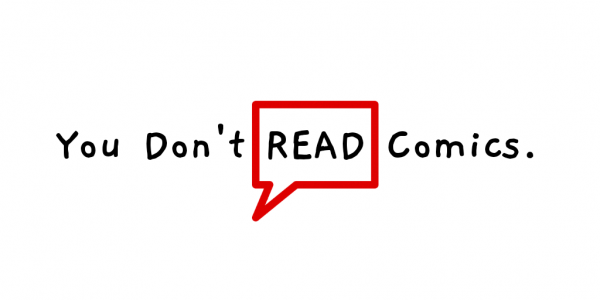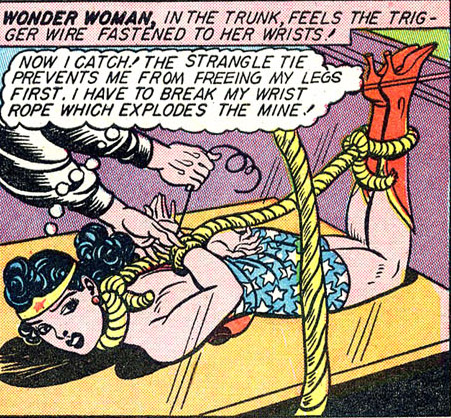Wonder Woman, Bondage and Feminism
Here's a fun fact: the creator of Wonder Woman, William Moulton Marston, was rumoured to have had a real bondage fetish, which is partly why on the cover of many of her first adventures she is tied up or trapped by the villain!
But let's take a couple of steps back and see how Wonder Woman came to be. I don't mean the origin story because that has been explained elsewhere, also if you want to get a good idea of that you can actually read comics. Instead this article will explain more about her creation as a character.
On October 25, 1940, an interview conducted by Marston's former student Olive Byrne was published in The Family Circle, titled "Don't Laugh at the Comics", in which Marston said that he saw "great educational potential" in comic books.
Marston was a teacher, a lawyer, a psychologist and an inventor. But I guess that wasn't enough for him...
Because, although he wasn't a writer, his work as a psychologist accompanied with that interview, is what earned him a position at DC as an educational consultant.
While working there, he recognised a market for female characters in a male-focused industry. He created Wonder Woman as "an antidote to the blood curdling images of masculinity".
He based Wonder Woman on his wife and an ex student of his, Olive Byrne, the woman who conducted than initial interview and who would also become the couple's lover. Yep, you read that right. Also, that same trio invented the lie detector! Which in turn, inspired Wonder Woman's lasso of truth. The threesome lived happily together under one roof, and Marston fathered children with both women (although Byrne’s offspring were told their father had passed away).
And now we come back to the covers of the comics. Yes William Marston was into bondage but he also did this to make a point about the concept of a damsel in distress. While Wonder Woman may have been that damsel, she was also the hero. She always got herself out of the situations. A woman liberating herself was a very important cultural message back then (as it is today).
He took inspiration from iconography used in the woman's suffrage movement, which he, his wife and their lover were very heavily involved in. Feminist ideologies built the character of Wonder Woman and so, this is why she is still such an important and iconic character today.
At one stage, Wonder Woman was featuring in four ongoing comic books. All Star Comics, Sensation Comics, Comic Cavalcade and Wonder Woman. During this time, there was some outcry (and you may find people still complain about it) because in All Star Comics she was brought in as the secretary to the Justice League of America.
However, there was no sexist agenda behind this- in fact, there was a surprisingly reasonable explanation, and it came down to Marston wanting to retain creative control over the character. As I said, she was featuring in several books and by minimising her role in just one of those books to being the secretary, it meant she was much easier to manage. This was a decision approved by the creator, and as I mentioned he was a strong advocate of feminism and equal rights (although some may consider his love triangle relationship rather hypocritical in comparison to his feminist ideas). No harm was ever meant to her reputation.
It's unclear whether or not he knew just how iconic Wonder Woman would become, however, he definitely had high hopes. As Marston once put it; “Frankly, Wonder Woman is psychological propaganda for the new type of woman who, I believe, should rule the world.”








